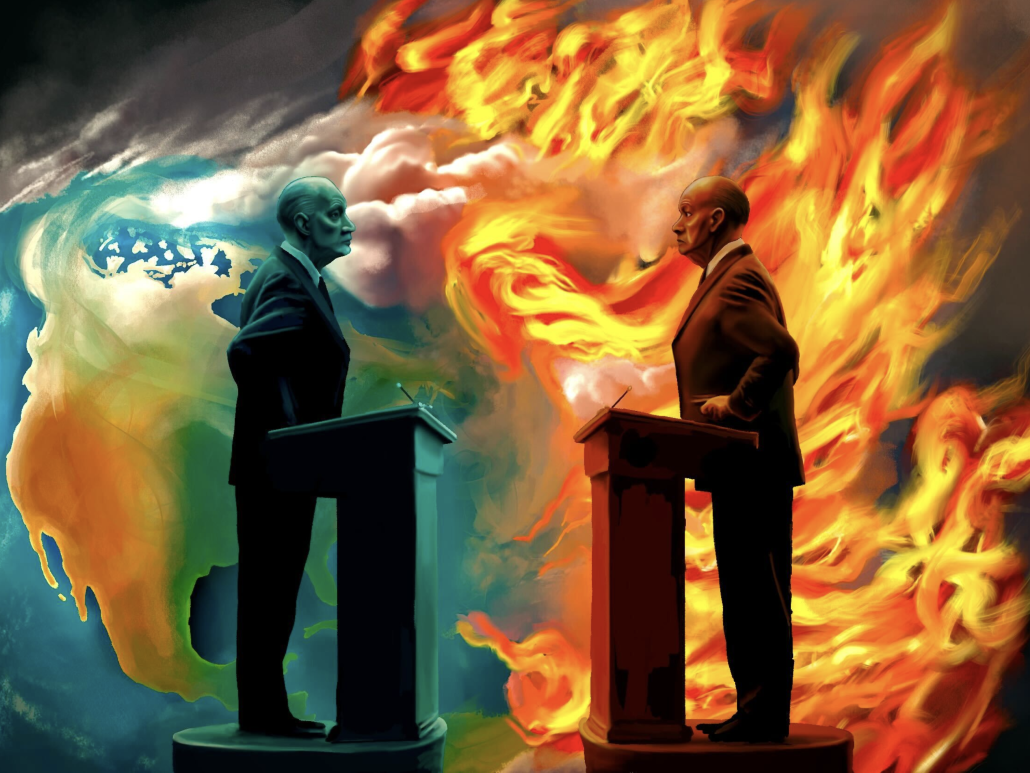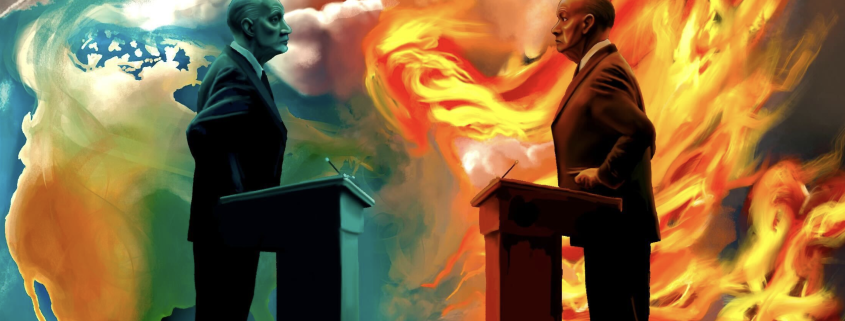The climate crisis wasn’t always divisive

A few weeks ago I was scrolling through YouTube comments, ignoring looming midterm deadlines, when a particular comment caught my eye. It said something along the lines of: “I was confused why climate change would be a debatable topic. Then I remembered: It’s America.”
The comment made me sit up. Hasn’t climate change always been controversial, everywhere? For as long as I could remember, the issue had been hounded by millions of dissenting voices. Climate change scientists like Katharine Hayhoe even received death threats from fervent deniers: “Watch out for the big manila [envelopes] … They are usually the craziest,” Hayhoe said in an interview with the New Yorker.
While climate change isn’t necessarily agreed upon outside of the United States, Americans are among the most divided on this issue. Of the 26 nations surveyed by the Pew Research Center in 2019, the U.S. ranked 20th in terms of viewing climate change as a “major threat.”
What else might I be in the dark about? Was there ever a U.S. that didn’t splinter at the mere mention of a manmade climate crisis?
It turns out that you don’t have to wind back the clock far to find signs of bipartisan acknowledgement of climate change. My favorite discovery was of an extremely awkward commercial featuring Republican former Speaker of the House Newt Gingrich and Democrat then-Speaker of the House Nancy Pelosi from 2008. Despite the chilly air between them, the pair had actually sat down to talk about the urgency of climate change action.
According to a Gallup survey conducted in the late nineties, 47% of Republicans and 46% of Democrats believed that global warming had already started, per a Gallup survey. It’s important to look into why discourse so dramatically changed the way it did.
In a disappointing, but not surprising, reality, money is why environmental conversations between American political parties have soured so greatly. Time magazine writer Justin Worland posits that the energy industry began fighting back against climate change science in the 1970s, when companies would engineer public relations and advertising campaigns, lobby the U.S. government and slash funding from climate research all in an effort to manufacture “the idea that climate science was up for debate.” It worked to a frightening degree. Republican politicians took up the mantle and continued this debate for decades, much to the detriment of our environment.
By 2016, surveys were giving very different results than the ones in the ’90s. Republicans and Democrats seemed especially split on the trustworthiness of climate scientists, as well as the key causes of climate change. In 2016, 70% of liberal Democrats “trust[ed] climate scientists a lot to give full and accurate information about the causes of climate change, compared with just 15% of conservative Republicans,” according to a Pew Research Center survey.
Honestly, some conservative Republicans would rather bury their heads in the sand and ignore the existence of a climate crisis altogether than lose their current way of life by trying to fix it.
Liberal Democrats and conservative Republicans are sharply divided on the efficacy of any climate change effort that demands individual, political or corporate action. Pew found that a whopping 71% of liberal Democrats agree that “an international agreement to limit carbon emissions … can make a big difference,” whereas only 27% of conservative Republicans felt the same. This large discrepancy persists throughout the survey results, unfortunately.
As the divide grows and persists, climate change grows along with it.
If you live in the U.S., it can be difficult to start productive conversations about climate change. Fortunately, there are some tips you can use to increase the likelihood of being heard.
My best advice: The situation isn’t without hope. It’s possible to have successful conversations about climate change. If we could do it back in the ’70s, we can do it now — and it’s imperative that we continue to try. For too long, we’ve simply been shouting over each other. It’s incredibly frustrating and disheartening to debate a topic in which the outcome shapes the quality and longevity of our world. In my experience, what works best is a mixture of patience, persistence, and compassion. Don’t give up, don’t resort to belittling the other side, and try hard to find common ground.

